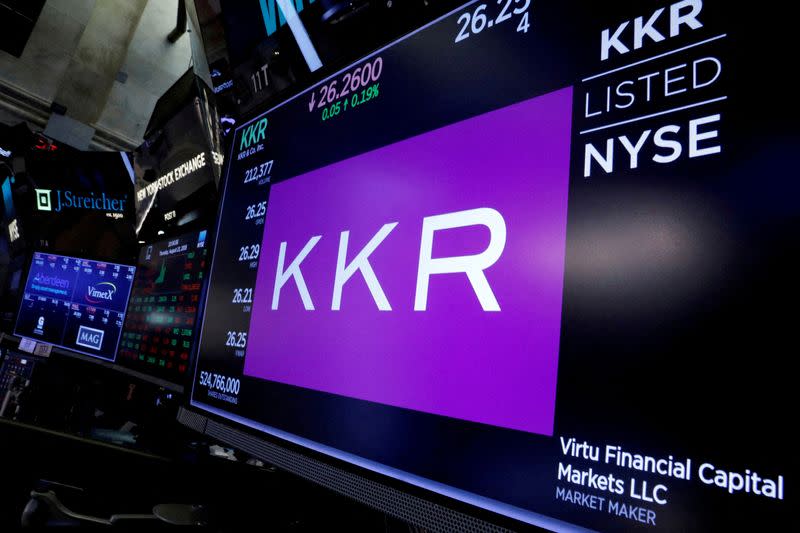German SpaceX customer OHB to delist as KKR takes minority stake

By Alexander Hübner and Sabine Siebold
BERLIN (Reuters) - Germany's OHB said U.S. financial investor KKR was buying a minority stake in the space company, which plans to delist to give it more flexibility to capitalise on a boom in the commercial satellite market.
KKR will give OHB, which is the biggest customer for Elon Musk's SpaceX launchers for institutional satellites in Europe, the chance to focus on its operational business, OHB CEO Marco Fuchs told Reuters, adding that being a listed company slowed down decision-making.
"In a family business, you can take decisions pretty quickly (...) while a listed company is subject to certain regulations, a certain complexity, a certain caution in the decision-making process," Fuchs said.
In addition, OHB had felt for some time that its share price did not reflect the company's fair value, Fuchs said.
OHB said KKR plans a voluntary public tender offer for all its outstanding shares at a price of 44 euros ($48.34), valuing the company at 768 million euros. Its shares, which closed at 32.2 euros on Friday, were up 10% to 42.15 euros at 1155 GMT.
The Fuchs family, which holds just under 70% of OHB, will keep its shares and remain majority shareholders, with Marco Fuchs staying on as chief executive for a further five years.
In total, KKR is putting up to 338 million euros into OHB with the offer, alongside a capital increase of 10% and a capital injection for the OHB space subsidiary Rocket Factory.
Fuchs said the deal could be completed in spring 2024 and underlined that his family aimed to keep a majority stake.
He called SpaceX a partner and role model from whom the Bremen-based firm could learn a lot, adding that he also expects OHB to capitalise on increased military spending since Russia's invasion of Ukraine.
"If an adversary has space capabilities, we are talking about a completely different situation than in the past when we were speaking of an asymmetric threat, when we saw the Taliban as the only possible adversary," he said.
He singled out space-based early warning systems against ballistic and hypersonic missiles as one area that had gained a new urgency, noting that OHB was leading a European consortium aiming to develop a system called Odin's Eye for this.
OHB said its executive and supervisory boards supported the offer and intended to recommend shareholders accept it.
OHB aims to become the leading space provider for governments and commercial customers in Europe and last year had sales of more than a billion euros, with 3,000 employees.
"The global market for space solutions will continue to grow. We see great potential in Europe," said Christian Ollig, partner and head of the German-speaking region at KKR.
OHB posted a first half pre-tax profit of 19.6 million euros and said its order backlog was at 1.8 billion euros.
($1 = 0.9102 euros)
(This story has been corrected to clarify that OHB is the biggest customer for SpaceX launchers for institutional satellites in Europe, not the biggest customer for the satellites themselves, in paragraph 2)
(Reporting by Alexander Huebner, Rachel More and Sabine Siebold; Editing by Miranda Murray, Kirsten Donovan and Alexander Smith)

 Yahoo Finance
Yahoo Finance 